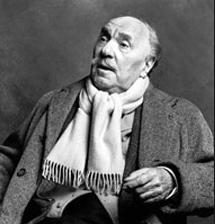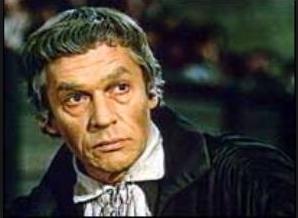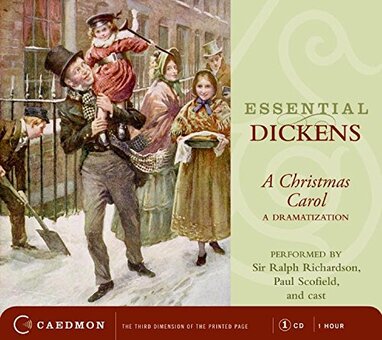|
As is well-known, when Broadway songwriters Sheldon Harnick and Jerry Bock, and librettist Joseph Stein wrote Fiddler on the Roof, they based it on stories by Sholem Aleichem. Originally, they were given a novel written by Sholem Aleichem called Wandering Star, but they thought it was too unwieldly for a stage musical. (I’ve read the book, and it’s very good, but it is indeed expansive and wouldn’t make a manageable musical. The tale in large part is about a troupe of a family of actors in Russia, and their adventures which carry them to America, with a many-levelled love story.) But Harnick said that they liked the environment so much that they looked into other stories by Sholem Aleichem, and came across his tales of Tevye’s daughters. Which, of course, lead to Fiddler on the Roof. Recently, I read a collection of short stories by Sholem Aleichem (the pen name of Sholom Rabinovitch), and there’s a section devoted solely to stories about Tevye. A few things leaped out. First, in one of the non-Tevye stories, there’s a sort of first-person tale where the author ruminates about what he’d do if was wealthy, and it’s titled, “If I Were Rothschild.” I have to believe that that’s where Sheldon Harnick came up with the idea for “If I Were a Rich Man.” The wishes are different – Tevye’s in the song are more about things for him and his family, the article is basically larger wishes for the town and wider environs, though the concept overlaps. For instance, the short story begins, “If I were Rothschild, ah, if I were only Rothschild.” And one thing he’d do is “provide a new roof for the old synagogue so the rain won’t drip on the heads of the men who come to pray.” In fact, I think – and I can’t remotely swear to this, though I have a vague recollection – that I read years ago that that’s the original name of the song, but Harnick changed it. And it’s a better title for the song, giving it a more universal and timeless sense. But it seems very likely that this is where the idea of the song came from. As I’ve written in the past, I became email friends with Sheldon Harnick, who passed away last year at age 99. I’d have loved to have asked, had I read this story first. But it really does seem near certain – most especially thanks to the second thing that leaped out. Which is the real revelation here. In the Tevye section of the collection I was reading, there’s a story called “The Bubble Bursts.” Tevye has been convinced to make a risky investment with a very distant relative. It doesn’t work out, the investment goes bust, and he loses it all. But before it does, when left alone, all sorts of visions passed before him of what life will be like if he becomes rich – “visions so sweet,” he says “that I wished they would never end.” And Tevye explains: “I saw a large house with a tin roof right in the middle of town, and inside the house were big rooms and little rooms and pantries full of good things, and around it a yard full of chickens and ducks and geese. I saw the mistress of the house walking around jingling her keys. That was my wife, Golde, but what a different Golde from the one I knew. This one had the face and manner of a rich man’s wife, with a double chin and a neck hung with pearls. She strutted like a peacock giving herself an air, and yelling at the servants girls….And at the head of the table sat the master of the house, Tevye himself, in a robe and skullcap, and around him sat the foremost householders of the town, fawning on him. “If you please, Reb Tevye. Pardon me, Reb Tevye.” Remarkable. “If I Were a Rich Man” spills right out of that. Unlike my guess with the “Rothschild” article's title, there is absolutely no question in mind that Sheldon Harnick read this particular story, and did a masterful job adapting some of Sholem Aleichman into a lyric. All of which adds to the likelihood that he also read the story, "If I Were Rothschlld," given the overlap of it all. For those of you who might not remember all the words of the song, here are just a few notable passages – I'd build a big, tall house with rooms by the dozen Right in the middle of the town A fine tin roof with real wooden floors below. I'd fill my yard with chicks and turkeys and geese and ducks For the town to see and hear Squawking just as noisily as they can. I see my wife, my Goldie, looking like a rich man's wife With a proper double-chin Supervising meals to her heart's delight. I see her putting on airs and strutting like a peacock Oy, what a happy mood she's in Screaming at the servants, day and night. The most important men in town would come to fawn on me. They would ask me to advise them like a Solomon the Wise: ‘If you please, Reb Tevye’ Pardon me, Reb Tevye’ -- Posing problems that would cross a rabbi's eyes. No question at all. The lyrics absolutely are adapted, in part, from Sholem Aleichem. And wonderfully and artistically so. And so, just as a full reminder, here’s the song. And as a wonderful bonus, this is Sholem Aleichem himself (Sholom Rabinovitch, of course) reciting about a minute of that very story, "Ven ikh bin Rotshild." Recorded over 100 years ago, I believe in 1902.
0 Comments
Jon Stewart made his Monday appearance on The Daily Show, and the main piece he did was a slam on the breathless, hyperbolic coverage of the Trump trial. I thought his criticism was a bit off -- this, after all, is the first-ever criminal trial of former president, and wall-to-wall coverage is not terribly unreasonable, especially since no TVs are allowed in the courtroom. However, the perspective on how over-the-top and repetitive a lot of that coverage is was spot on. More to the point, it's almost all very funny. And funniest of all, without giving it away, is some self-awareness on Stewart's part, thoroughly willing to be the butt of some excellent humor. And as a bonus, here's Stewart's very good interview with Salman Rushdie, about his new book that takes a deep, insightful look at the near-murderous attack on him 18 months ago, and the societal culture where that fits in. It's a very thoughtful interview, but both Steward and Rushdie are able to bring humor to it. Live from Connecticut this week, for the ‘Not My Job’ segment of the NPR quiz show Wait, Wait…Don’t Tell Me!, the guest is author James Patterson. His conversation with host Peter Sagal deals with his long, wide-ranging career, and is not just interesting but often very funny, especially when dealing with writer feuds.
This is the full Wait, Wait… broadcast, but you can jump directly to the “Not My Job” segment, it starts around the 18:00 mark. Every year around this time, there are articles about which recorded version of A Christmas Carol is "the best." Usually it comes down to the films that starred either Alistair Sim or Reginald Owen. But for me, it's this one. It's not a movie, though, or a TV production. It's, of all things, an audio version that was done in 1960 for, I believe, the BBC. It's quite wonderful and as good an adaptation of the story as I've come across. It stars Sir Ralph Richardson as Scrooge, and Oscar-winner Paul Scofield as Dickens, the narrator. Casts don't get much better than that. And it's about as fine a way to head into Christmas Eve for the Holiday Music Fest. I first heard this on radio station WFMT in Chicago which has been playing this every Christmas Eve for many decades. Eventually, I found it on audio tape. I've listened to it annually since I was a kidling. Some years I think I won't listen to it this year, but put it on for a few minutes for tradition's sake -- but after the first sentence it sucks me in. There are four reasons why, for me, this is far and away the best version. But one reason leaps out. First, the acting is as good as it gets. Scofield is crisp and emphatic as the narrator, and almost every creak of his voice draws you in to the world, and Richardson as Scrooge is a Christmas pudding joy. Second, being radio, you aren't limited by budgets to create the Dickensian world. Your imagination fills in every lush and poverty-stricken, nook and cranny -- and ghostly spirit, aided by moody sound effects and violins. Third, the adaptation sticks closely to the Dickens tale, and Scrooge comes across more a realistic, rounded-person than as a Mythic Icon. And fourth, and most of all by far, unlike any of the other version, this includes...Dickens. While the story of A Christmas Carol is beloved, it's Dickens' writing that makes it even more vibrant than the story alone is. And that's all lost in the movie versions, even down even to the legendary opening line, "Marley was dead, to begin with." Or any of the other classic narrative lines. (Like my favorite, when Scrooge first comes in contact with a ghost and was "as close to it as I am now to you, and I am standing in the spirit at your elbow.") Or the richness of Dickens setting the mood and tone and description of the gritty and ephemeral and emotional world. All that's gone in movies, good as the productions may be. But all of that is here in this radio adaptation, and Scofield's reading of it is joyously wonderful and memorable. For many, this will be A Christmas Carol unlike any other you're aware of, giving it a meaning and richness you didn't realize was there. The ending of the tale is so much more moving and joyful here, as we listen to Dickens' own words, that begin with "Scrooge was better than his word. He did it all, and infinitely more," and it soars from there, to perhaps my favorite extended passage about the new Scrooge and how good he is in the "good old world. Or any other good old world." If you have the time or inclination, do give it a listen. If only for five minutes to at least get the flavor. You might find yourself sticking around. Let it play in the background, if you have other things to do. It runs about 55 minutes. (Side note: speaking of Dickens, if you know the original cast album of Oliver!, the actor here who plays the Ghost of Christmas Present, Willoughby Goddard, was Mr. Bumble on Broadway and also in the original London production.) Normally I would post this later in the evening -- but given the various time zones across the country, I thought that I'd get it embedded earlier to give as many listeners as possible the chance to hear it on Christmas Eve. This might not play immediately, since it's a large file and may have to buffer first. But be patient, it's worth it. Ralph Richardson, left. Paul Scofield, right.
This episode of the show is a two-fer, though oddly it’s the guest who’s not the Mystery Guest who caught my eye. And that’s Erle Stanley Gardner. While he’s not officially the Mystery Guest, the panelists are blindfolded in small part because they might recognize him, but more I’m sure because they’d recognize his name as the author of the Perry Mason novels. Oddly, though, that's not noted, and he’s only identified on screen as “Mystery Writer.” He’s a fun guest for his outgoing brusqueness – and also for playing the game really well, giving hesitating unsure responses when the answers are obvious. And he gives one of the funniest replies at the 9:40 mark, even getting a hug for it from host John Daly. Interestingly, this seems to take place not only before the Perry Mason TV series premiered, but just days before (which is likely why he’s a guest), since he has to very quickly rush mentioning the show as Daly bids him goodbye, adding “or we’re both going to get fired!” Also worth noting that Jim Backus is one of the panelists. If you want to jump to it, it begins at the 2:45 mark. The official Mystery Guest is George Sanders, who comes along at the 20-minute mark. Though he does an acceptable job with a disguised Russian voice at the beginning, eventually that slides away, however he has an answer to one question that, while surprisingly correct, is unexpected. (For the record, this is George Sanders below.) I posted this eight years ago, but sometimes when things get so insane, it's good to step back and let the warm, endearing, loopy world of James Thurber wash over. And after deciding to post this, it whimsically occurred to be that the whole story is about screwing up the storage of papers... A while before initially writing it, I had mentioned a story here about seeing John Goodman at the start of his career in a small role in the pre-Broadway world premiere of Big River, based on Huckleberry Finn. He played 'Pap Fin,' and the musical, which began at the La Jolla Playhouse in San Diego, eventually made it to Broadway, where it won the Tony Award as Best Musical, with a score by country music songwriter Roger Miller, who won a Tony, as well. What I also mentioned at the time is that during the show's Broadway run, Roger Miller himself briefly replaced John Goodman for a month in the role. Wonderful as this tale is and much as I'd love to have seen Roger Miller in the role, that's not the point here, just the background. That because there’s actually one other story similar to that which I’d put above it. (That last sentence original read, "probably put above it. I've edited out the "probably." I'd dearly have loved to have seen Roger Miller in his show. But...well, it's just too hard to top this -- ) Back around 1960, they did a wonderful review on Broadway called A Thurber Carnival, which were adaptations of a bunch of short stories by James Thurber. There’s a great cast album which is well-worth tracking down if you like Thurber. One of my favorite scenes on it is also one of my favorite Thurber stories, “File and Forget,” a first-person story about a hellish time that Thurber supposedly had trying to correct with his publisher about a delivery problem of one of his books. On stage, the role of 'James Thurber' was played by Tom Ewell. Into the run, it turned out that the real Thurber was a bit of a ham, and for a month the production had James Thurber himself play himself in that one scene! There was one particular challenge: Thurber was near-blind. Because of this, he couldn’t make the entrances and exits properly. What they did was build a sort of conveyor belt with a chair on it. Thurber simply sat in the chair and it would roll on and off the stage. Now, that I would have paid really-good cash money to see. For both of these stories, Thurber and Miller, it’s a shame that no one recorded them. And a shame that they both occurred in the days before cell phones, when someone in the audience would have taped it. Still, it’s fun to imagine both… It's not the same thing, but this is audio of "File and Forget" from the original Broadway cast album. |
AuthorRobert J. Elisberg is a political commentator, screenwriter, novelist, tech writer and also some other things that I just tend to keep forgetting. Feedspot Badge of Honor
Archives
June 2024
Categories
All
|
|
© Copyright Robert J. Elisberg 2024
|









 RSS Feed
RSS Feed